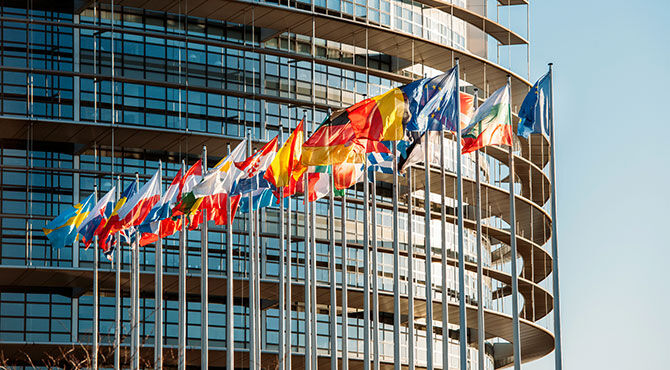UK launches ‘charm offensive’ over financial services future
The UK is to continue its attempt to secure a post-Brexit trade deal as Philip Hammond and David Davis travel to Germany as part of a ‘charm offensive’.

 10 January 2018
10 January 2018Calming financial sector worries
In a joint newspaper article, the pair warned against creating “unnecessary barriers” in the sector at a time when increasing numbers of London-based banks and other financial firms seek to establish hubs elsewhere in the EU amid fears that, post-Brexit, they will lose the ‘passporting rights’ that currently enable them to trade freely throughout the bloc.Ahead of their trips to Germany this week – Mr Hammond to an economic summit in Berlin on Wednesday evening, Mr Davis to meet business chief in Munich on Thursday – the pair wrote an article for the Frankfurter Allgemeine newspaper saying the UK would adhere to EU rules during the expected two-year transition period after Brexit.“As two of Europe’s biggest economies, it makes no sense to either Germany or Britain to put in place unnecessary barriers to trade in goods and services that would only damage businesses and economic growth on both sides of the Channel,” they said.Related stories:
- New EMA Amsterdam HQ not ready for relocation from London
- Barnier warns city firms will lose 'passporting rights'
- UK must retain membership of some EU agencies, warns CBI
Future trade relationships
The UK government is seeking a bespoke trade deal covering both goods and services after Brexit and, in the article, the ministers said that they understood that Germany and other EU members wanted to protect the integrity of the single market “and that without all the obligations of EU membership third countries cannot have all the benefits”.But they said that “those priorities are not inconsistent with ours, a deep and special partnership with our closest trading partners and allies”.The article said the UK wanted financial services to be covered by the new “economic partnership”, with a deal that “supports collaboration within the European banking sector, rather than forcing it to fragment”. The UK and EU should “maintain our common principles” and continue the “intelligent co-operation of our regulators”, the pair said.The Financial Times reported on Wednesday that the EU had sent a flurry of memos to 15 industries in November and December warning companies from airlines to mineral water producers that they should “be prepared” for regulatory no-man’s land in March next year if Britain left the EU without a deal.The memos are said to explain why Mr Davis accused the EU of trying to spook British business and why he had taken advice on the legality of EU warnings to businesses that Britain would be treated as a “third country” after March 2019.In their article, Messrs Hammond and Davis argued, “The 2008 global financial crisis proved how fundamental financial services are to the real economy, and how easily contagion can spread from one economy to another without global and regional safeguards in place.”UK likely to lose single market privileges suggest Barnier
However, in a speech in Brussels on Tuesday, Michel Barnier, the EU’s chief Brexit negotiator, warned that, while a trade deal could include regulatory co-operation on financial services, the EU would not be willing to give up the Single Rulebook drawn up in the wake of the 2008 financial crisis.Rejecting suggestions he was seeking “punishment or revenge” of the UK, Mr Barnier said, “A country which withdraws from this very specific framework and from its consistent application by national authorities takes on the ability to diverge, but at the same time loses the benefits of the single market.“Its financial services providers will not be able to benefit any longer from a passport into the single market, nor from a system of general equivalence of norms.”The EU will have the power to deem UK regulations “equivalent” to its own if it is confident they do not threaten financial stability, added Mr Barnier.
For related news and features, visit our Brexit section. Look out for the launch of 2018’s Relocate Awards, entry is now open. Relocate’s new Global Mobility Toolkit provides free information, practical advice and support for HR, global mobility managers and global teams operating overseas.
 Access hundreds of global services and suppliers in our Online Directory
Access hundreds of global services and suppliers in our Online Directory
©2025 Re:locate magazine, published by Profile Locations, Spray Hill, Hastings Road, Lamberhurst, Kent TN3 8JB. All rights reserved. This publication (or any part thereof) may not be reproduced in any form without the prior written permission of Profile Locations. Profile Locations accepts no liability for the accuracy of the contents or any opinions expressed herein.









































